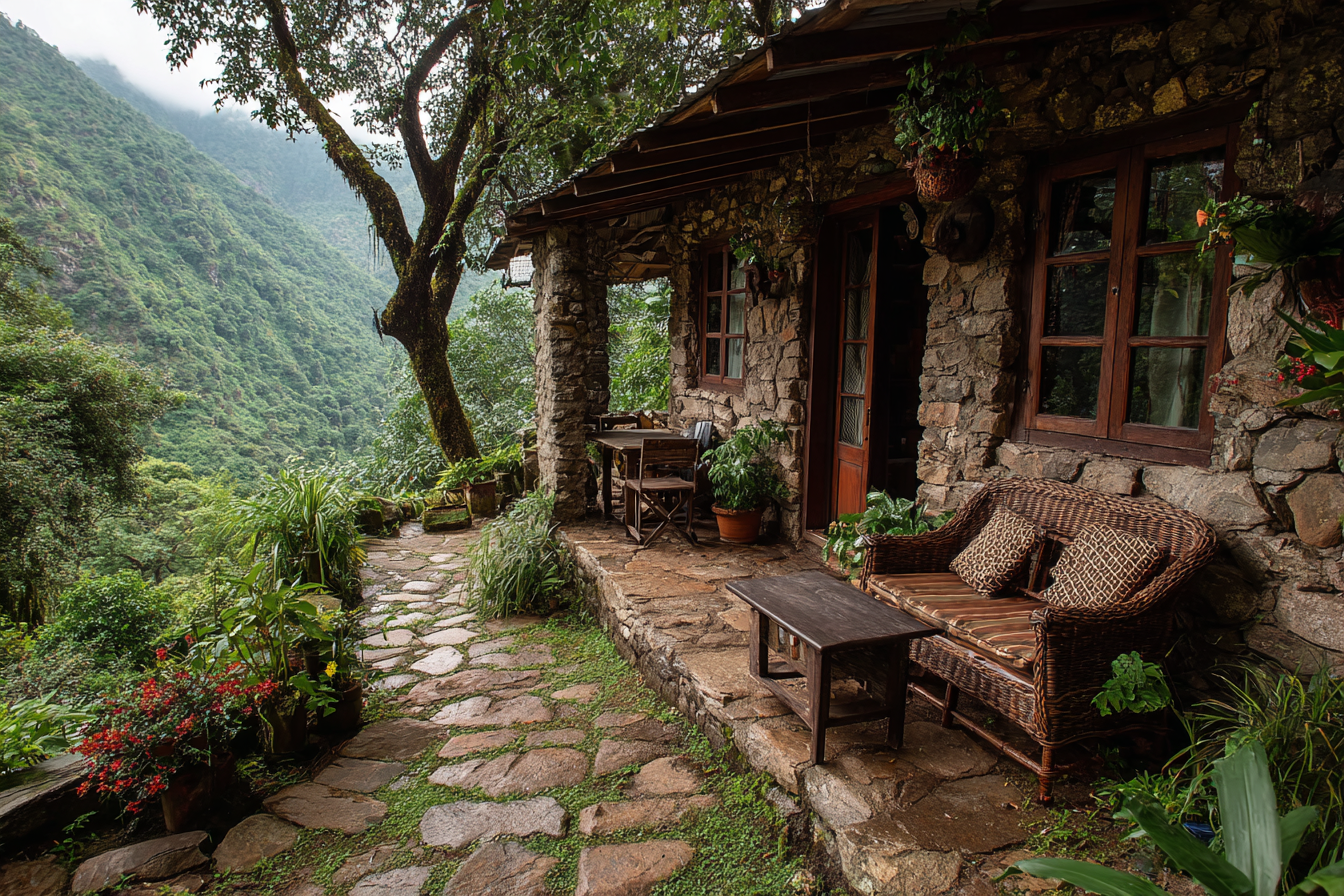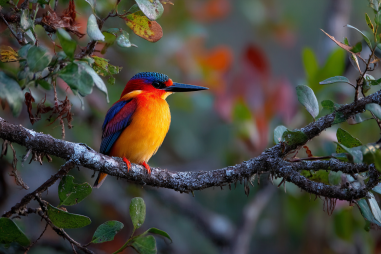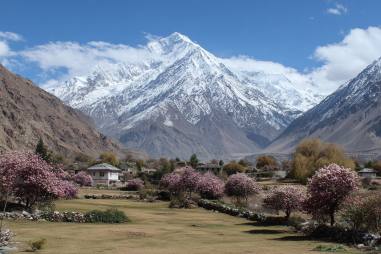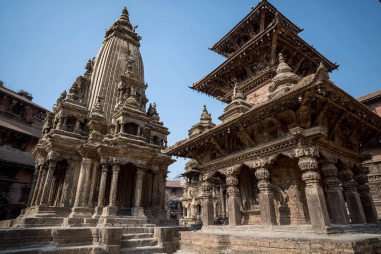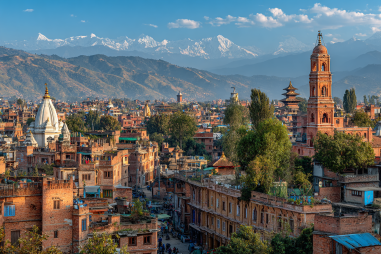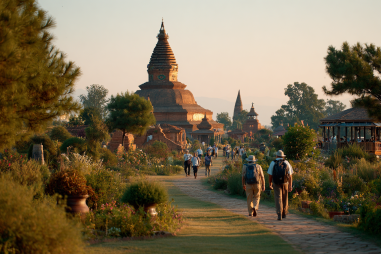Gorkha, a stunning region nestled in the heart of Nepal, offers travelers not just breathtaking natural beauty but also a unique opportunity to engage in sustainable and eco-conscious travel. As the world becomes increasingly aware of the impact tourism can have on fragile environments and local cultures, Gorkha stands out as a beacon for eco-tourism. By embracing responsible travel practices, visitors can help preserve its lush forests, rich biodiversity, and vibrant communities for generations to come. Whether you are trekking through rugged landscapes or interacting with local villagers, adopting sustainable travel habits in Gorkha ensures that your journey benefits both the environment and the people who call this region home.
Introduction to Eco-Tourism in Gorkha
Eco-tourism in Gorkha is a growing movement that underscores the importance of traveling in a way that minimizes environmental degradation and fosters cultural respect. Unlike conventional tourism, which often prioritizes mass visitation and economic gain, eco-tourism focuses on conservation, education, and community empowerment. Gorkha’s rich natural heritage—including its dense forests, mountain ecosystems, and diverse wildlife—makes it an ideal location for travelers who want to connect deeply with nature while learning about the local way of life.
The region’s unique combination of historic sites, such as the Gorkha Durbar (palace), and scenic trekking routes through the Himalayas attracts eco-conscious travelers eager to explore responsibly. By supporting conservation-focused projects and engaging with community-led initiatives, tourists contribute directly to the protection of Gorkha’s natural and cultural assets.
Environmentally Responsible Accommodations
One of the easiest ways to practice eco-tourism in Gorkha is by choosing accommodations that prioritize sustainability. Many guesthouses, lodges, and homestays in Gorkha have embraced green practices such as using solar energy, reducing water consumption, and minimizing waste production. Staying at these establishments helps reduce your carbon footprint and supports businesses that are committed to protecting the environment.
Homestays are particularly popular among travelers interested in authentic experiences with local families. These accommodations not only provide income to local households but also promote cultural exchange and responsible resource use. By opting for eco-friendly lodgings, visitors encourage the adoption of sustainable development models, ensuring that tourism benefits the environment and the economy alike.
Community-Based Tourism Initiatives
Community-based tourism (CBT) is a fundamental aspect of eco-tourism in Gorkha. It empowers local residents by involving them directly in tourism planning, operations, and profit-sharing. Several villages in the Gorkha district have initiated CBT programs that allow visitors to participate in daily activities such as farming, traditional craft-making, and cultural festivals.
These initiatives help travelers gain a deeper understanding of the local lifestyle while generating income that supports community welfare projects like education, healthcare, and infrastructure improvements. By engaging in CBT, visitors not only experience the authentic culture of Gorkha but also contribute to the equitable development of the region.
Sustainable Trekking and Wildlife Tours
Trekking is one of the most popular activities in Gorkha, and sustainable trekking practices are essential to preserving the fragile mountain environment. Guided treks led by trained local guides ensure that visitors follow designated trails, avoid disturbing wildlife, and adhere to leave-no-trace principles. Sustainable trekking operators also prioritize hiring local porters and guides, thus supporting the community economically.
Wildlife tours in Gorkha, focusing on the area’s diverse fauna such as red pandas, Himalayan black bears, and a variety of bird species, promote conservation awareness and respect for natural habitats. Eco-friendly tours emphasize minimizing noise pollution, maintaining safe distances from animals, and avoiding habitat disruption. Participating in these tours enriches travelers’ understanding of Nepal’s biodiversity while encouraging conservation efforts.
How Travelers Can Contribute Positively
Travelers to Gorkha can actively support eco-tourism by adopting simple yet effective practices during their visit:
- Respect Local Customs: Learn about cultural norms and traditions and show respect by dressing appropriately and participating thoughtfully in community events.
- Reduce Waste: Carry reusable water bottles, avoid single-use plastics, and dispose of trash responsibly.
- Support Local Businesses: Purchase handmade crafts, eat at local restaurants, and use locally owned tour operators to keep economic benefits within the community.
- Conserve Water and Energy: Be mindful of water use, turn off lights and electronics when not needed, and choose eco-friendly transportation options where possible.
- Respect Wildlife: Observe animals from a distance and avoid feeding or disturbing them.
By taking these steps, visitors can ensure that their impact is positive and lasting.
Local Organizations and Conservation Efforts
Gorkha is home to several organizations dedicated to environmental conservation and sustainable development. Groups such as local NGOs, conservation clubs, and community forest user groups work tirelessly to protect the region’s natural resources and promote eco-friendly tourism. These organizations often offer volunteer opportunities for travelers interested in contributing more directly to conservation activities, like tree planting, wildlife monitoring, and environmental education.
Collaborations between the government, NGOs, and local communities have led to the establishment of protected areas and community-managed forests that preserve biodiversity while allowing sustainable use of resources. Supporting or volunteering with these groups can be a rewarding way for travelers to deepen their connection to Gorkha and help safeguard its environment.
Practical Eco-Friendly Travel Tips
To make the most of your eco-tourism experience in Gorkha, consider the following practical tips:
- Pack light and bring eco-friendly gear such as biodegradable soaps and refillable containers.
- Choose slow travel options like walking, cycling, or using shared transportation to reduce emissions.
- Stay informed about local conservation guidelines and respect protected areas.
- Engage with locals to learn how to minimize your environmental footprint effectively.
- Carry cash to support small vendors and avoid relying on ATM machines that may be scarce in remote areas.
- Stay on marked trails and avoid damaging vegetation while trekking or exploring.
Adhering to these tips helps preserve the natural beauty of Gorkha and ensures a more meaningful travel experience.
Protecting Gorkha for Future Generations
Traveling responsibly in Gorkha means acknowledging the delicate balance between enjoying its natural splendor and ensuring that it endures for future visitors and residents. The region’s ecosystems and cultural heritage are invaluable assets that require careful stewardship. By choosing eco-tourism options, supporting community-led initiatives, and practicing sustainable habits, travelers become partners in conservation rather than contributors to depletion.
The success of eco-tourism in Gorkha depends on the collective efforts of tourists, locals, and organizations working together to create a sustainable tourism model. When done right, eco-tourism enhances lives, preserves the environment, and fosters a deeper appreciation for the incredible landscapes and cultures of this beautiful part of Nepal. So next time you plan a trip to Gorkha, remember that your choices make a difference—not only for your journey but also for the future of this remarkable region.

